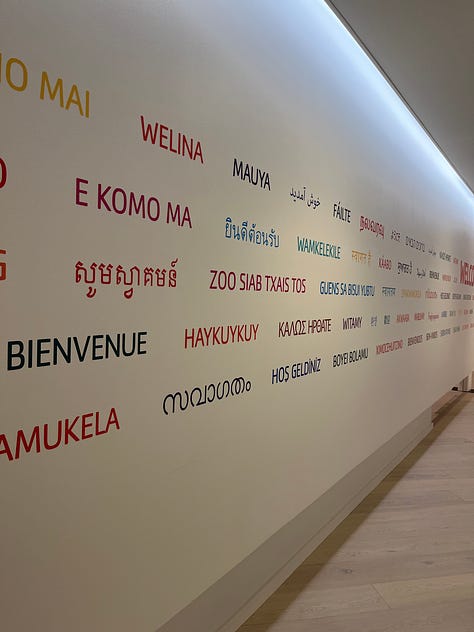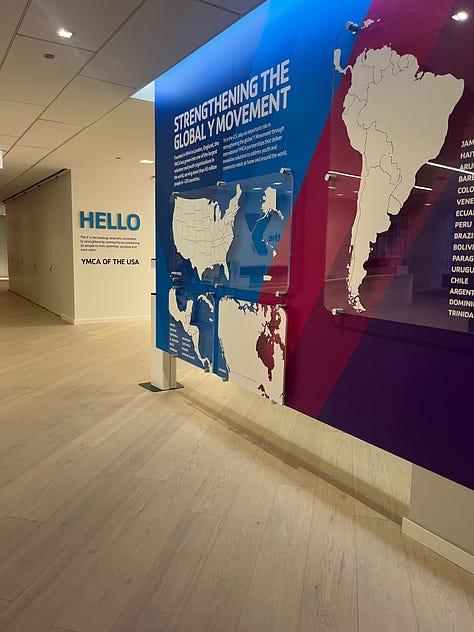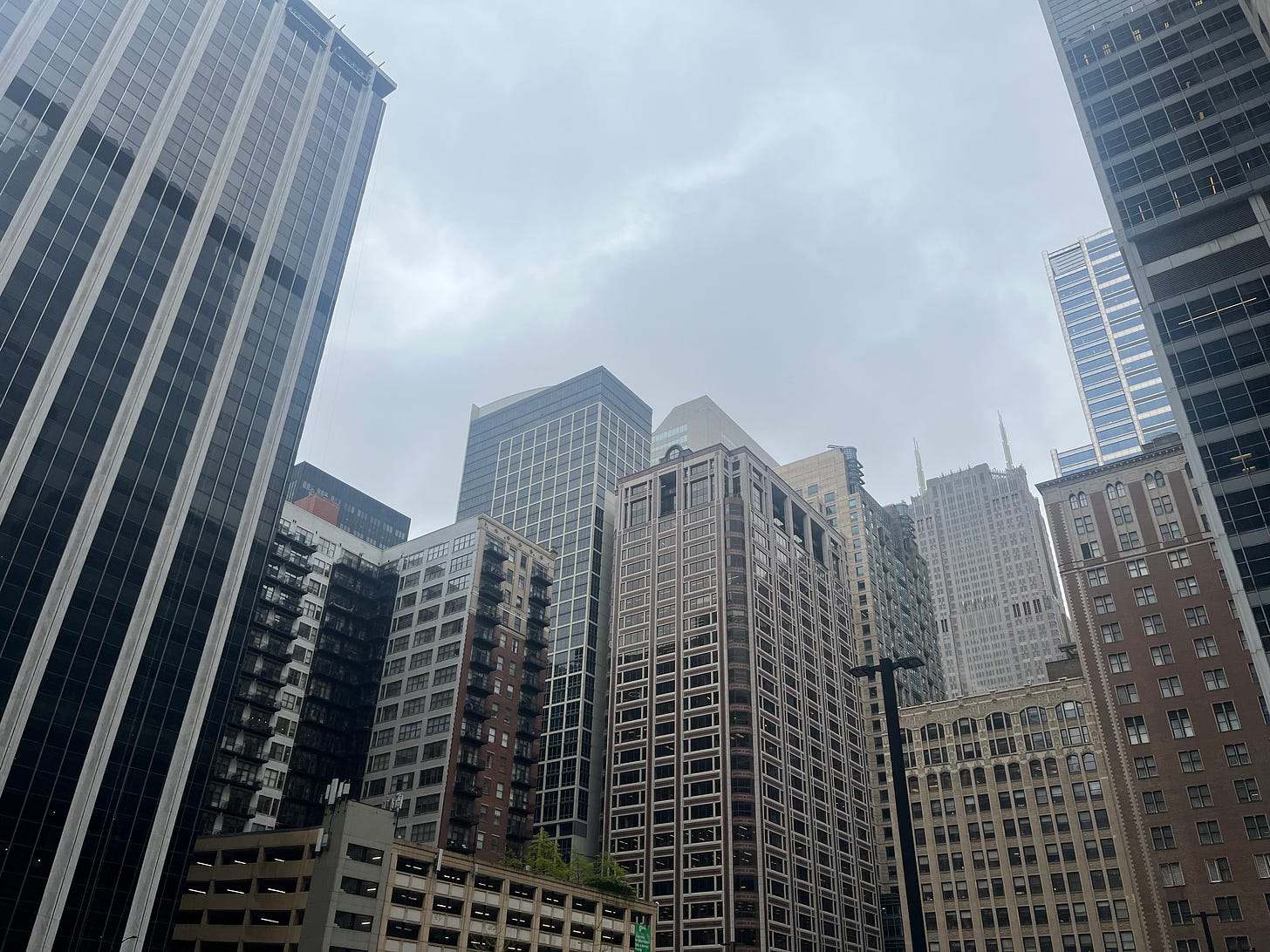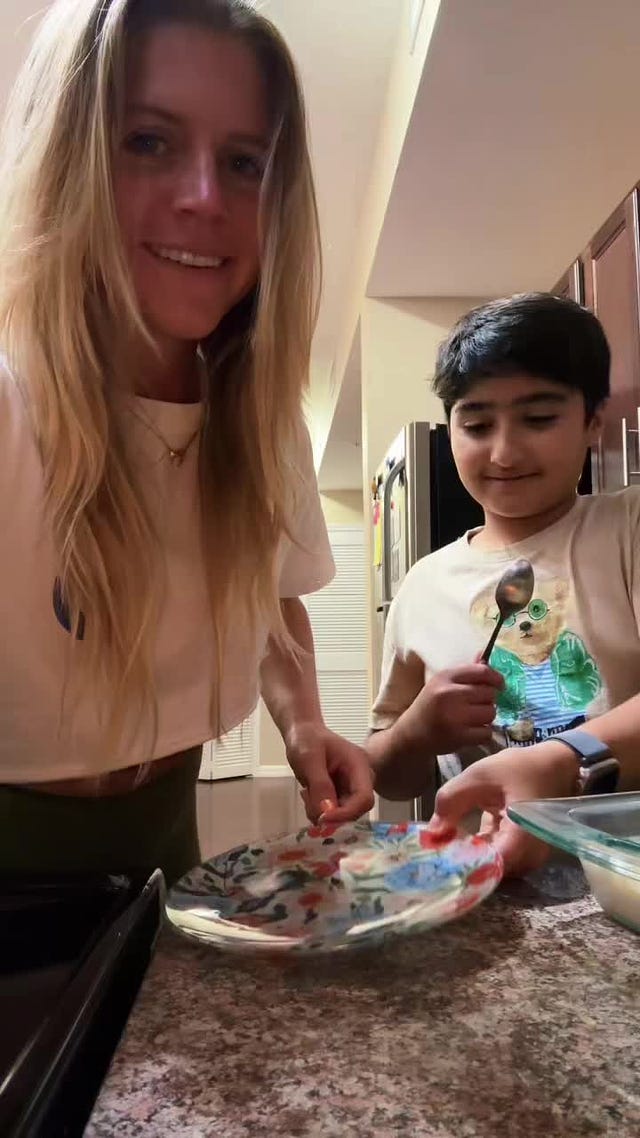I love the metaphor of the potluck as a description of America’s pluralism. I initially heard of this illustration from my friend and colleague, Eboo Patel and have since riffed on this theme, taken my own spin on it, and even offered some critiques of it.
Yesterday I had the opportunity to share a piece of what I bring to this potluck at a conference convened by Habitat for Humanity, the YMCA, Catholic Charities, and Interfaith America. In preparing my notes for this opening plenary session, I reflected on the many times I’ve been able to offer this image to others through my work at Interfaith America.



In short, to liken American life to a potluck is to say that our communities ought to be places where we can bring the fullness of ourselves. To belong together is not a project of homogenization (a “melting pot”) but the celebration of difference. At the potluck, our dishes—each fully their own—are brought to the table to be graciously offered and fully enjoyed.
I love that the potluck imagery centers on food, which is, for many, an integral part of social life and identity. Whether we spend hours preparing a meal for ourselves, have a freezer full of Trader Joe’s frozen dinners, or spend most nights ordering out, the food we choose to eat often tells a story about ourselves. To bring our dish to this shared meal is to offer our stories to the greater community.
As we walk through this potluck and fill up our plate we begin to carry with us the stories of our neighbors.
 Tiktok failed to load.
Tiktok failed to load.Enable 3rd party cookies or use another browser
This TikTok with Audrey and Nour, while not a traditional potluck, offers an example of this sharing. As Audrey tastes Nour’s halawet el jibn, his joy increases. They laugh and joke as food bridges two worlds together—not to steal, exoticize, or scoff, but to deepen their knowledge and understanding of one another. Nour and Audrey exemplify how the potluck both grounds our relationships and serves as a catalyst for an even closer belonging.
Since I began working at Interfaith America, I’ve asked countless people what they’d bring to this potluck. Many have told me that they’d bring their family’s biriyani recipe—each uniquely crafted, refined, and handed down from generation to generation. Others were excited to bring huo guo (hotpot) because all could eat together and yet choose what pieces of the spread looked best to them or met their dietary needs. Folks from the Midwest often have a hot dish at the front of their mind or a good cheese they love, and those from the South will have a savory dish that was a staple in their household. Of course, every South Asian has to mention chai because of a generations-old recipe or its historic presence as a uniting substance across partition and apartheid.
While it is a simple question at a surface level, these answers often speak to a deeper hope—that we each may play a part in cultivating a society where all are welcome to bring the fullness of themselves to the table.
At the heart of the potluck question is a deeper question: I am really asking what each person believes they (and their community) contribute to our society. Rather than framing in the negative (“What are you against”), the potluck invitation is framed in the positive (“What will you bring?”).
So, reader, I pose the question to you: What will you bring? What story will you tell? Let me know in the comments below.
Reading:
Zachary Lee, “My Church Band Raised a Hallelujah on Netflix’s ‘Beef’” (Christianity Today)
Jill Frank, “Metaphysics and Monsters: ‘A thought from the Outside’” (Syndicate)
Jenna Barnett, “The Pros and Cons of Twitter Blue for Me, Jesus, Son of God” (Sojourners)
Watching:
Love and Death (HBO Max)







Connect with people, at least with a smile. Don't pass by as though I don't see them.
Love this! Let's enter the public spaces to build things, not burn things!